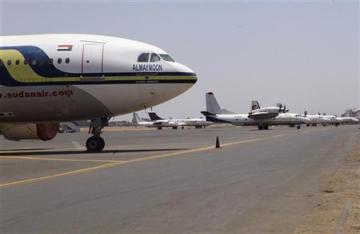Sudan parliament to summon finance, oil ministers over spike in jet fuel price
March 4, 2014 (KHARTOUM) – The Sudanese parliament is intending to summon the oil and finance ministers to inquire about reasons behind the new increase of jet fuel price which is expected to raise price of airline tickets by 25%.

The chamber called on the parliament to intervene to cancel or delay the price increase decision.
Al-Kordofani, who met with the parliamentary subcommittee on Transportation on Tuesday, told reporters following the meeting that finance and oil ministries have neither thoroughly examined their nor have they consulted with bodies responsible for the aviation industry.
He asserted the decision would negatively impact local aviation companies because cost of fuel amounts to 60% of the operating cost, predicting that clients particularly in Darfur states would reject this increase as it will cause a rise in ticket price between 15% to 20%.
The parliament intends to conduct an urgent probe into the issue.
Al-Kordofani noted that most of the companies have 3-months contracts that cannot be canceled overnight, saying the decision left the companies with three options including operating at a loss, cancelling flights or working towards reversing the decision.
He denied that this will also affect international aviation companies, saying local airlines will pull out from the market which amplify the burden on ordinary citizens.
National aviation companies complain about the continuous increase in fuel prices which eats into its profit.
Last year, nine local carriers have stopped operations due to competition by foreign ones which forced them out of business.
Sudan has been plagued by inflation, a shortage of hard currency, and a weakening Sudanese pound since South Sudan separated in 2011, taking with it 75% of Sudan’s oil production.
(ST)
